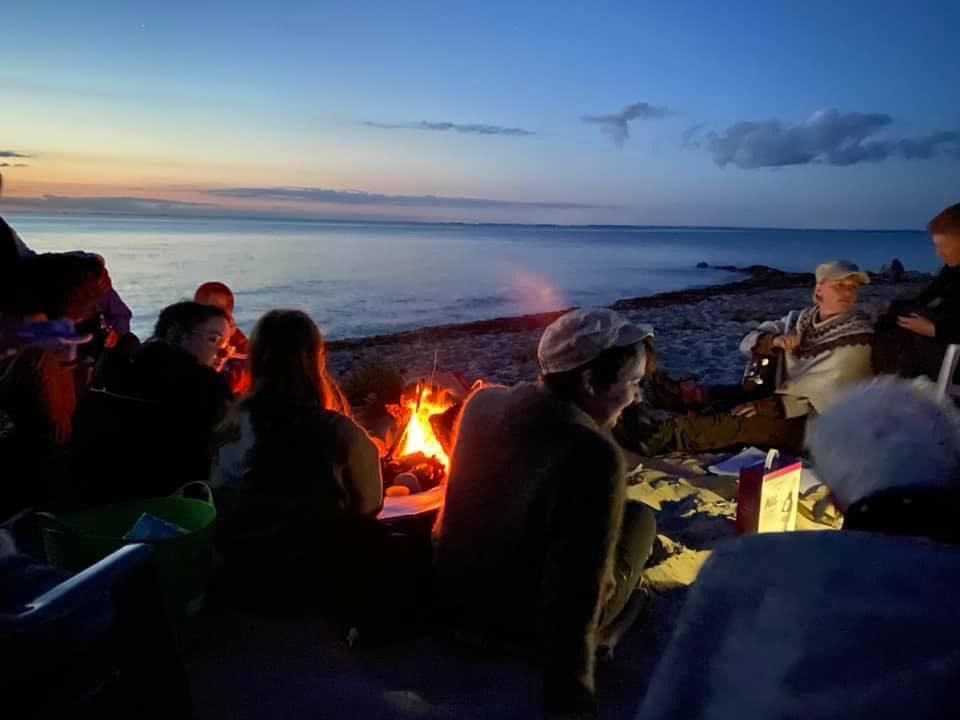Men are not welcome when hundreds of feminist, transgender and non-binary people each year get together to try ‘masculine activities’ – without the things we usually take for granted and without any distractions.
That is basically what the famous Femø Lejr, founded in the early 1970s by Danish feminists, is all about, explains Ragna Aamand, a long-term camp participant.
“If the camp were open for men – like in a social arena – a lot of women would not grab the hammer and start to put nails in or put up the tent because they would think that men can do it better,” Aamand told The Copenhagen Post.
The camp, attended by females across the generations, runs for three weeks in total, and during the international week, non-Danish speakers can join.
Making Danish Islands useful
The camp was originally founded with support from the Ministry of Culture in 1970: a time when rebellious currents were simmering all over Western Europe and the United States.
In Denmark, it gave birth, among other things, to the red stocking movement, which was inspired by the socialist women’s movement ‘The Redstockings’ in the USA.
The movement soon got a lot of followers, and initially, the camp became popular. It also got attention abroad because it was the first of its kind.
According to Aamand the movement was “looking for a spot where they could build their strength and find out how they could deal with omnipresent patriarchy in society and change the things that were not working for them”.
Since 1971, hundreds of women from across the country have gathered each year – and this year the camp is welcoming around 580 participants in total.
In the early years, first-time visitors were often taken aback by its ease with nudity, but today they are more likely to be surprised by how hands-on the camp is – the highly different rhythm of life implemented there, explains Aamand.
“Every day is a lot slower. It takes three to four hours to cook dinner. That’s how it is when you are 70 people and you don’t have electricity. But I like that because you also have the possibility to talk and be more present with each other while you do stuff,” she said.
Constant evolution
The feminist movement in Denmarks isn’t what it used to be like when the camp first started in the early 1970s.
But Aamand argues that the camp is highly relevant today, explaining that the feminist movement – like the camp itself – is evolving and new questions are being addressed.
First it was the inclusion of lesbians into the feminist movement, and this year will make the debut of transgender women and non-binary people with an F or an X on their ID.
“I can see how gender is still a thing, how you’re being treated differently, and I do think both ways around,” Aamand said.
Nothing against men
Men have never been allowed to join the camp, and Aamand thinks it should continue to be a female-only event, as the participants are inspired to think differently and break old habits. It’s only when they’re forced into action that they realise what they are capable of, she argues.
“There’s also a psychological thing about being around men because they have a certain role. So, I don’t think the camp should open up to men,” Aamand said, arguing there should be a camp for men as well.
The international week is also a moment for women to ask questions and talk about topics it’s usually hard to bring to the table. They can also participate in activities such as writing workshops, feminist self-defence introduction courses, body therapist treatment, yoga, dance and more.
“The main reason I think the camp is very important is that we are together. We understand we shouldn’t fight each other. And that we should find that place in ourselves where we are both vulnerable and strong,” Aamand said.
“This togetherness is elevated from theoretical to practical status on this island. Women can truly experience sorority by understanding that no person is an island. We are all connecting and we are connected. So, we need everybody.”











